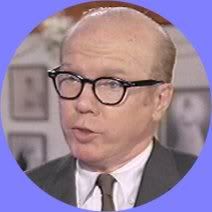Schizophrenia:
The first step in getting treatment for schizophrenia is getting a correct diagnosis. This can be a more difficult than it might seem, because the symptoms of schizophrenia can be similar at times to other major brain disorders, such as bipolar disorder (manic-epression) or even major depression. Another issue is that a person with schizophrenia may be paranoid. For example, they may think they people are out to get them, insult them, stalk them, or degrade them. In extreme cases, these can manifest themselves into actual perceptions i.e. that someone has shot you with a BB gun.
it is important to see a good therapist when trying to deal with some of the symptoms that are listed below.
Symptoms of Schizophrenia Schizophrenia is characterized by profound disruption in cognition and emotion, affecting the most fundamental human attributes: language, thought, perception, affect, and sense of self. The array of symptoms, while wide ranging, frequently includes psychotic manifestations, such as paranoia or experiencing other sensations not connected to an obvious source (hallucinations) and assigning unusual significance or meaning to normal events or holding fixed false personal beliefs (delusions). No single symptom is definitive for diagnosis; rather, the diagnosis encompasses a pattern of signs and symptoms, in conjunction with impaired occupational or social functioning
Characteristic symptoms: Two (or more) of the following, each present for a significant portion of time during a 1-month period (or less if successfully treated):
Delusions - false beliefs strongly held in spite of invalidating evidence, especially as a symptom of mental illness: for example,Paranoid delusions, or delusions of persecution, for example believing that people are "out to get" you, or the thought that people are doing things when there is no external evidence that such things are taking place.
Delusions of reference - when things in the environment seem to be directly related to you even though they are not. For example it may seem as if people are talking about you.
Delusions of grandeur - for example when you believe that you are very special.
Disorganized speech (e.g., frequent derailment or incoherence) - these are also called "word salads".
Negative symptoms, these are the lack of important abilities. Some of these include:
lack of emotion - the inability to show sympathy. This is commonly found when one tries to make fun of the sick of dying, like religious leaders of dead children.
Low energy - the person lacks a desire to exercise and may put on wieght
Lack of interest in life, low motivation, particularly in the field of education. It is difficult for schizophrenics to get a college degree.
Affective flattening - a blank, blunted facial expression or less lively facial movements or physical movements.
Alogia (difficulty or inability to speak, write or spell)
Inappropriate social skills or lack of interest or ability to socialize with other people. Most schizophrenics are disliked by people primarily because the symptom causes them to speak or act in a way that is constantly negative.
Inability to make friends or keep friends, or not caring to have friends
Social isolation - person has a difficult time with interpersonal relationships. Many schizophrenics have been divorced at least twice.
Cognitive Symptoms of Schizophrenia:
Referring to oneself in the plural
Dissatisfaction with one’s surroundings
Constant complaining about society or government without any real merit
Difficulty expressing thoughts
Difficulty integrating thoughts, feelings and behavior
Erectile dysfunction
Inability to communicate with one’s spouse or child
Treatment of Schizophrenia:
The first and foremost step in treatment of schizophrenia is to find a licensed therapist and engage in therapy.
"He has no enemies, but is intensely disliked by his friends."
Oscar Wilde
Some thoughts for the day
Sam the Eagle
P.S. My name really is Sam the Eagle
P.P.S. I read. I was reading "SUN TZU ON THE ART OF WAR" just last night
skip to main |
skip to sidebar

"I will assign one person from my office for an entire month to look into every aspect of their lives. And I will post it."---Philip r. Klein 10/5/08

Now in our fourteenth year ! .... "I can't think of anyone in Southeast Texas who deserves to be made fun of more than Philip Klein"....The Southeast Texas Record 6/7/10

"Wit is educated insolence" Aristotle
WANTED: FOR HIGH CRIMES AND IRRITATION

"I will assign one person from my office for an entire month to look into every aspect of their lives. And I will post it."---Philip r. Klein 10/5/08
SAM THE EAGLE

Now in our fourteenth year ! .... "I can't think of anyone in Southeast Texas who deserves to be made fun of more than Philip Klein"....The Southeast Texas Record 6/7/10
NOTABLE QUOTES:
I still want to talk about Kelli's tits and bush.
PHILIP KLEIN on BEAUMONT UNDERGROUND 4/5/10
Now can we talk about Kelli's bush?
PHILIP KLEIN on BEAUMONT UNDERGROUND 4/13/10
I had a negro cut my yard. I provide jobs.
PHILIP KLEIN on BEAUMONT UNDERGROUND 4/28/10
PHILIP KLEIN on BEAUMONT UNDERGROUND 4/5/10
Now can we talk about Kelli's bush?
PHILIP KLEIN on BEAUMONT UNDERGROUND 4/13/10
I had a negro cut my yard. I provide jobs.
PHILIP KLEIN on BEAUMONT UNDERGROUND 4/28/10

"Wit is educated insolence" Aristotle


